
Daphne Koller is an Israeli-American computer scientist. She was a professor in the department of computer science at Stanford University and a MacArthur Foundation fellowship recipient. She is one of the founders of Coursera, an online education platform. Her general research area is artificial intelligence and its applications in the biomedical sciences. Koller was featured in a 2004 article by MIT Technology Review titled "10 Emerging Technologies That Will Change Your World" concerning the topic of Bayesian machine learning.

Deborah Louise McGuinness is an American computer scientist and researcher at Rensselaer Polytechnic Institute (RPI). She is a professor of Computer, Cognitive and Web Sciences, Industrial and Systems Engineering, and an endowed chair in the Tetherless World Constellation, a multidisciplinary research institution within RPI that focuses on the study of theories, methods and applications of the World Wide Web. Her fields of expertise include interdisciplinary data integration, artificial intelligence, specifically in knowledge representation and reasoning, description logics, the semantic web, explanation, and trust.

Zoubin Ghahramani FRS is a British-Iranian researcher and Professor of Information Engineering at the University of Cambridge. He holds joint appointments at University College London and the Alan Turing Institute. and has been a Fellow of St John's College, Cambridge since 2009. He was Associate Research Professor at Carnegie Mellon University School of Computer Science from 2003–2012. He was also the Chief Scientist of Uber from 2016 until 2020. He joined Google Brain in 2020 as senior research director. He is also Deputy Director of the Leverhulme Centre for the Future of Intelligence.
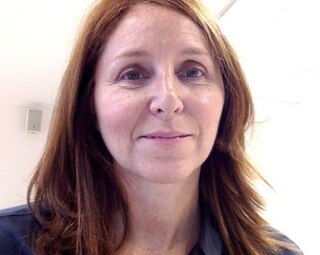
Francesca Rossi is an Italian computer scientist, currently working at the IBM Thomas J. Watson Research Center as an IBM Fellow and the IBM AI Ethics Global Leader.
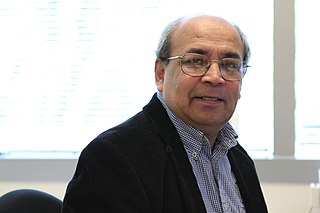
Ashok K. Goel is a professor of computer science and human-centered computing in the School of Interactive Computing at Georgia Institute of Technology, and the chief scientist with Georgia Tech's Center for 21st Century Universities. He conducts research into cognitive systems at the intersection of artificial intelligence and cognitive science with a focus on computational design and creativity. Goel is also the executive director of National Science Foundation's AI Institute for Adult Learning and Online Education and an editor emeritus of AAAI's AI Magazine.
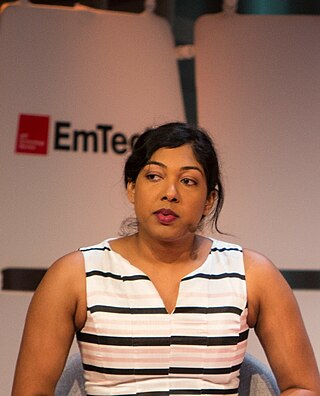
Shinjini Kundu is an Indian American physician and computer scientist at The Johns Hopkins Hospital in Baltimore, Maryland. Her research focuses on designing artificial intelligence systems to detect diseases that may be imperceptible to humans. She was named one of Forbes 30 under 30, MIT Technology Review's 35 innovators under 35, a World Economic Forum Young Global Leader, and a winner of the Carnegie Science Award.
Sridevi Sarma is an American biomedical and electrical engineer known for her work in applying control theory to improve therapies for neurological disorders such as Parkinson's disease and epilepsy. She is vice dean for graduate education of the Johns Hopkins University Whiting School of Engineering, associate director of the Johns Hopkins Institute for Computational Medicine, and an associate professor in the Johns Hopkins Department of Biomedical Engineering.
Carol Elizabeth Reiley is an American business executive, computer scientist, and model. She is a pioneer in teleoperated and autonomous robot systems in surgery, space exploration, disaster rescue, and self-driving cars. Reiley has worked at Intuitive Surgical, Lockheed Martin, and General Electric. She co-founded, invested in, and was president of Drive.ai, and is now CEO of a healthcare startup, a creative advisor for the San Francisco Symphony, and a brand ambassador for Guerlain Cosmetics. She is a published children's book author, the first female engineer on the cover of MAKE magazine, and is ranked by Forbes, Inc, and Quartz as a leading entrepreneur and influential scientist.

Suchi Saria is an Associate Professor of Machine Learning and Healthcare at Johns Hopkins University, where she uses big data to improve patient outcomes. She is a World Economic Forum Young Global Leader. From 2022 to 2023, she was an investment partner at AIX Ventures. AIX Ventures is a venture capital fund that invests in artificial intelligence startups.
Tamara Ann Broderick is an American computer scientist at the Massachusetts Institute of Technology. She works on machine learning and Bayesian inference.
Animashree (Anima) Anandkumar is the Bren Professor of Computing at California Institute of Technology. Previously, she was a director of Machine Learning research at NVIDIA. Her research considers tensor-algebraic methods, deep learning and non-convex problems.
Emily Mower Provost is a professor of computer science at the University of Michigan. She directs the Computational Human-Centered Artificial Intelligence (CHAI) Laboratory.
Marzyeh Ghassemi is a Canada-based researcher in the field of computational medicine, where her research focuses on developing machine-learning algorithms to inform health-care decisions. She is currently an assistant professor at the University of Toronto's Department of Computer Science and Faculty of Medicine, and is a Canada CIFAR Artificial Intelligence (AI) chair and Canada Research Chair in machine learning for health.
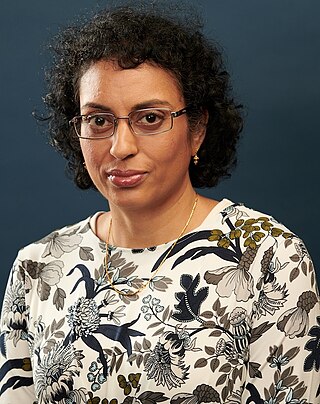
Rama Akkiraju is an Indian-born American computer scientist. She is vice president of AI for IT at Nvidia and performs research in the field of artificial intelligence.
Rediet Abebe is an Ethiopian computer scientist working in algorithms and artificial intelligence. She is an assistant professor of computer science at the University of California, Berkeley. Previously, she was a Junior Fellow at the Harvard Society of Fellows.

Silvia Ferrari is an Italian-American aerospace engineer. She is John Brancaccio Professor at the Sibley School of Mechanical and Aerospace Engineering at Cornell University and also the director of the Laboratory for Intelligent Systems and Control (LISC) at the same university.
Cansu Canca is a moral and political philosopher, with a Ph.D. specializing in applied ethics, and founder and director of AI Ethics Lab. Formerly, she was a bioethicist at the University of Hong Kong, and an ethics researcher at Harvard Law School, Harvard School of Public Health, Harvard Medical School, National University of Singapore, Osaka University, and the World Health Organization.
Barbara Elizabeth Engelhardt is an American computer scientist and specialist in bioinformatics. Working as a Professor at Stanford University, her work has focused on latent variable models, exploratory data analysis for genomic data, and QTLs. In 2021, she was awarded the Overton Prize by the International Society for Computational Biology.

Jordan Harrod is an American research scientist and YouTuber who works on neuroengineering, brain-machine interfaces, and machine learning for medicine. A current graduate student at Harvard and MIT, Harrod also runs a YouTube channel to educate the public about artificial intelligence. As of January 2023, her YouTube channel has over 84 thousand subscribers and her videos have over 2 million total views.
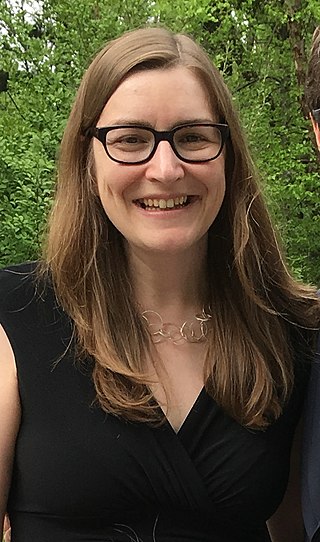
Jennifer (Jenn) Wortman Vaughan is an American computer scientist and Senior Principal Researcher at Microsoft Research focusing mainly on building responsible artificial intelligence (AI) systems as part of Microsoft's Fairness, Accountability, Transparency, and Ethics in AI (FATE) initiative. Jennifer is also a co-chair of Microsoft's Aether group on transparency that works on operationalizing responsible AI across Microsoft through making recommendations on responsible AI issues, technologies, processes, and best practices. Jennifer is also active in the research community, she served as the workshops chair and the program co-chair of the Conference on Neural Information Processing Systems (NeurIPs) in 2019 and 2021, respectively. She currently serves as Steering Committee member of the Association for Computing Machinery Conference on Fairness, Accountability and Transparency. Jennifer is also a senior advisor to Women in Machine Learning (WiML), an initiative co-founded by Jennifer in 2006 aiming to enhance the experience of women in Machine Learning.











